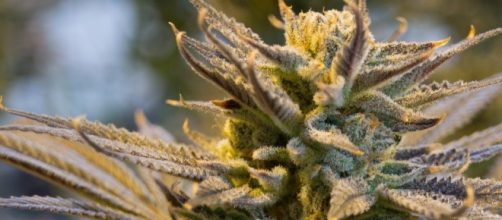Forgetting things has become sort of a ‘habit’ to most people, whether it’s our phone, keys or the lyrics to a familiar song. It is true that our memory degenerates as we age, but nobody ever wants to succumb entirely to Dementia. That said, a new study has found that the chemical in cannabis that makes people feel ‘high’ appears to improve learning and memory in older mice. Later this year, similar tests will be conducted on humans, which will further solidify this finding.
THC reverses brain aging
The process of aging is normal, but along with this fact is the possibility of memory loss.
For years, researchers have been looking for ways to slow down or even reverse this process, and it seems scientists at the University of Bonn and The Hebrew University of Jerusalem have now achieved this in mice.
The team used two-month-old mice as a control group. The older mice were administered with tetrahydrocannabinol (THC) found in cannabis for four weeks, of course in non-intoxicating doses, and this treatment saw their gray matter effectively made ‘younger’ again.
With age, the brain’s endocannabinoid system, which affects memory, sensations (including pain) and mood, rapidly deteriorates. “Giving THC artificially activates the system in the old mice,” said Andras Bilkei-Gorzo, who led the study published in the journal Nature Medicine.
“It can restore signaling to a normal level.”
Effects on the younger generation
While Marijuana (in controlled amounts) may bring benefits to the older generation, it may have the opposite effect on young adults. Previous research indicated that young and healthy adults who toke up incessantly could have episodic memory (EM) impairments and abnormal hippocampus morphology.
It has been found that teens who smoked pot every day for about three years have poor long-term memory. The MRI of their hippocampus also looked abnormal. Although the results may be compatible with a causal hypothesis, it is of significant consideration that the observed cannabis-related shape differences in the hippocampus could also be explained as biomarkers of a neurobiological susceptibility to poor memory or the effects of cannabis.
Human trial
The team is now planning human trials to find out whether older people can benefit from low doses of THC too and, if so, from what age it is beneficial. “There is no formula to translate mouse months into human years,” Andreas Zimmer, co-author of the study. Instead of weed, however, the examiners will use purified THC so the dosage can be controlled precisely.
Zimmer emphasized that proper dosing is important and said that it is not the same as smoking marijuana. Whatever the outcome of the human trial will be, the team is extremely positive about the prospect of THC being used to combat dementia.


